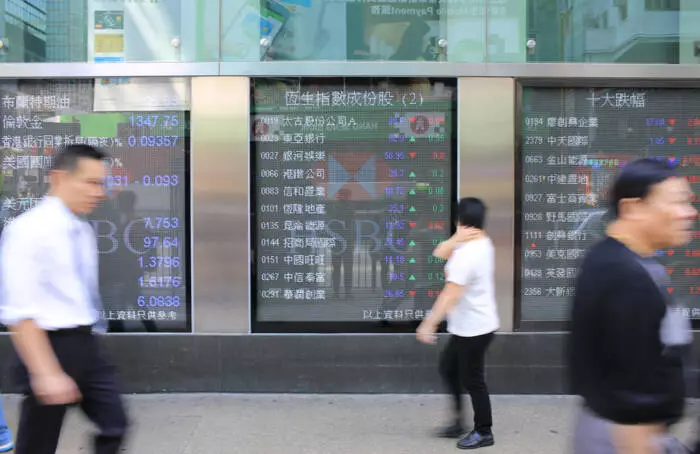The financial markets experienced a notable downturn in the week ending November 15, with the Hang Seng Index witnessing a significant drop of 6.28%, closing at 19,426. This decline reflects a growing skepticism among investors, particularly regarding the potential for a Federal Reserve rate cut in December. The intertwined effects of fluctuating economic indicators from China and ongoing tariff threats from the Trump administration have considerably dampened market sentiment.
Diverse sectors exhibited varying degrees of loss, with real estate and technology stocks notably hit. The Hang Seng Mainland Properties Index plummeted by 10.85%, indicating substantial distress in the real estate market, which is often viewed as a barometer for economic health in China. Likewise, the Hang Seng Tech Index (HSTECH) fell by 7.29%. Major technology firms in the region battled declines, with Alibaba and Baidu experiencing losses of 7.53% and 7.23%, respectively. Tencent, despite a decline of 5.21%, managed to limit its losses due to better-than-anticipated earnings—a rare silver lining in an otherwise bleak week.
On the mainland, concerns over US tariffs coupled with economic uncertainties led to negative performance in key indexes. The CSI 300 and the Shanghai Composite fell by 3.29% and 3.52%, respectively. These declines underscore the fragile economic environment in China, where investors remain wary of external pressures that could hinder growth.
The commodity markets also faced intense pressure, as iron ore prices dropped by 3.26%, primarily due to fears surrounding China’s demand amidst escalating tariffs from the US. Such uncertainties translated to a 4.51% decrease in gold prices, driven by decreasing expectations for a Fed rate cut in the near future.
Meanwhile, in Australia, the ASX 200 index experienced a slight contraction of 0.12% after enjoying a rebound of 2.17% in the preceding week. This decline can largely be attributed to the drop in mining stocks like BHP Group Ltd. and Rio Tinto Ltd., which saw their shares decrease by 7.67% and 7.75%, respectively. Still, the index found some support from tech and banking stocks. Notably, the S&P/ASX All Technology Index surged by 3.89%, driven by a positive performance from Commercial Bank of Australia, which reported a stable loan book.
In Japan, the Nikkei Index fell by 2.17%, marking a partial retreat from a 3.80% gain the previous week. The stronger USD/JPY exchange rate, which increased by 1.12% to reach 154.281, failed to invigorate market enthusiasm as investors remained preoccupied with the trajectory of Fed policy. Companies like Tokyo Electron and SoftBank Group faced declines, indicating the pervasive caution among investors.
Key upcoming events, including rate decisions from the People’s Bank of China and the Reserve Bank of Australia, along with critical US economic data, are poised to influence market dynamics. As investors continue to navigate this volatile landscape, the interplay of domestic and global economic factors will be crucial in shaping market sentiment in the weeks to come. The uncertainty surrounding the Fed’s policy direction, coupled with geopolitical tensions, will likely keep investors on edge as they seek signals for stabilization or further decline.

